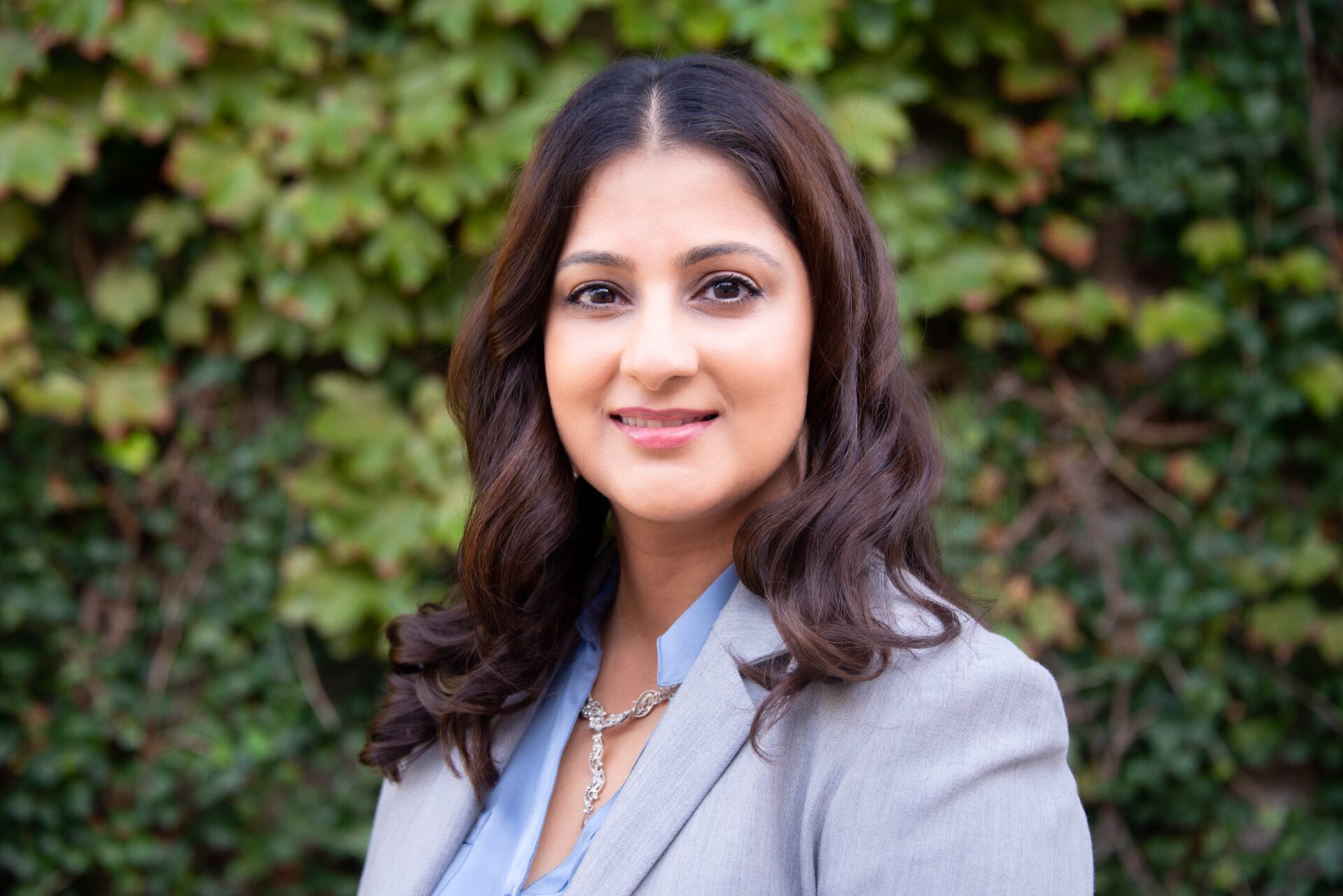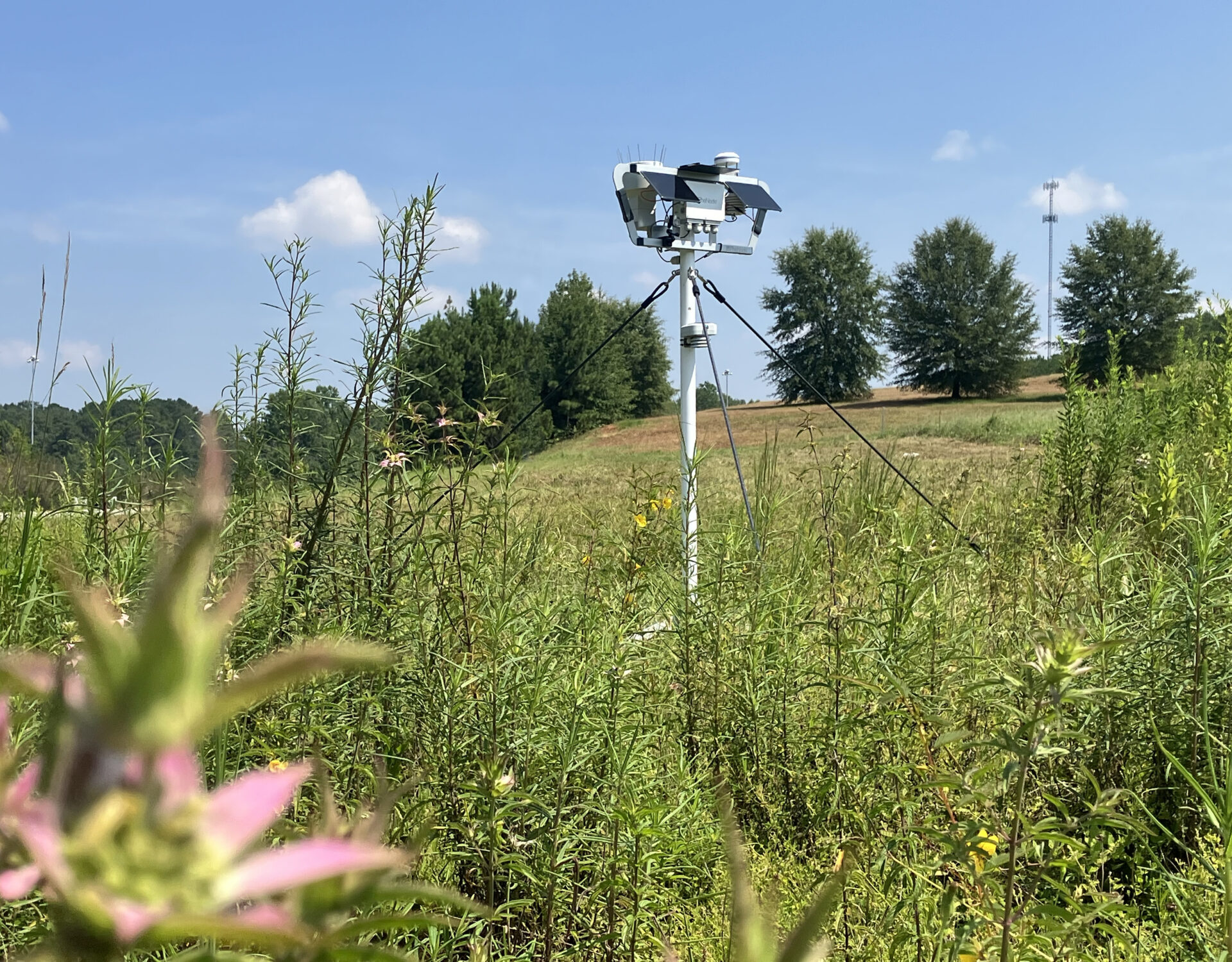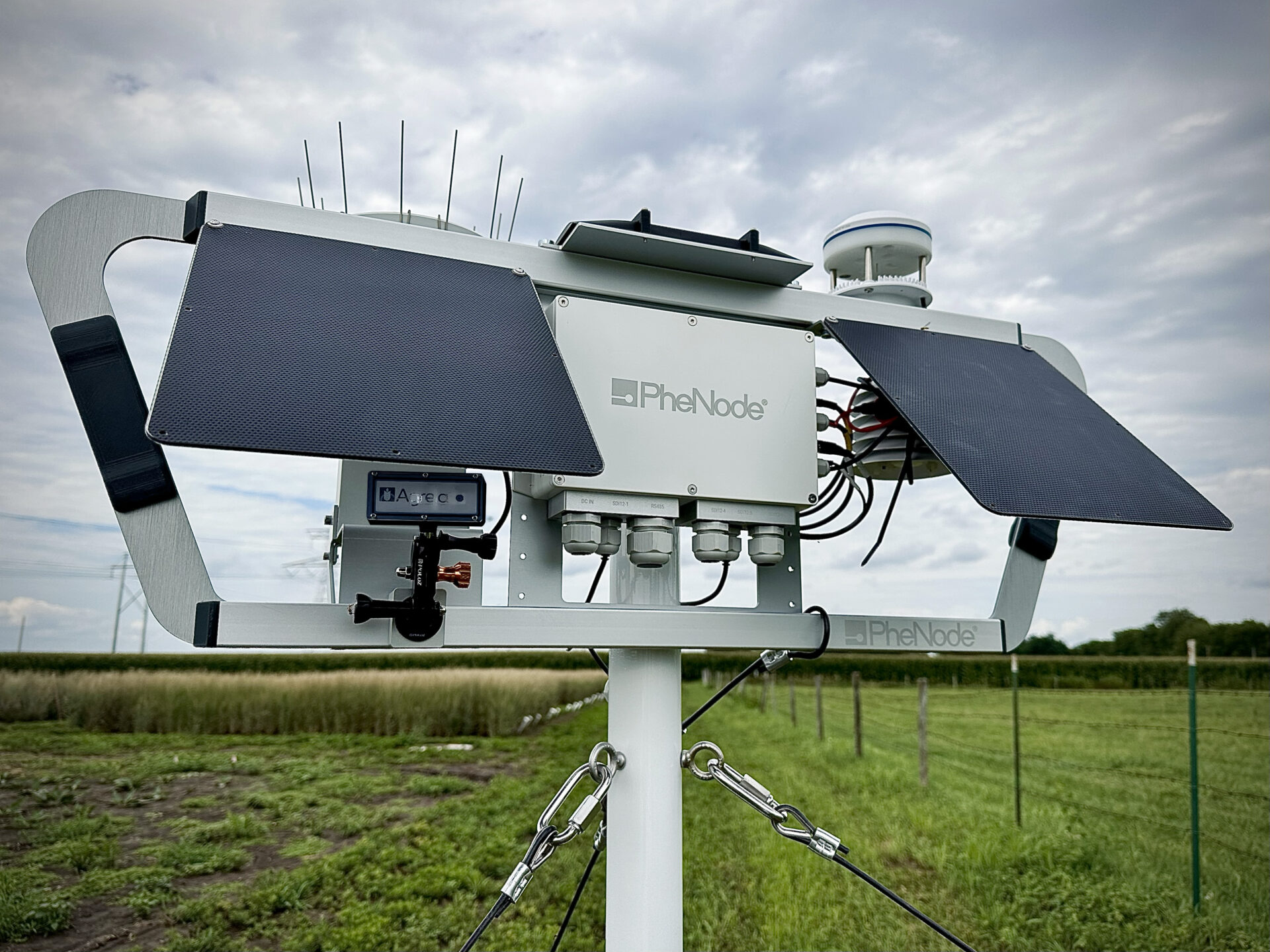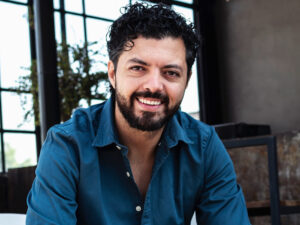“The PheNode is designed to be a platform for other folks’ innovation,” Agrela founder and CEO Nadia Shakoor says of her company’s environmental monitoring platform that recently launched commercially.
Her company has spent the last eight years perfecting the hardware, which was originally developed for agriculture but has also shown itself effective on other biodiversity and soil health projects.
Agrela’s most recent project is a collaboration with The Ray, a nonprofit by the Ray C. Anderson Foundation that works with the Georgia Department of Transportation to regenerate the landscape along US highways. Agrela’s PheNode device is currently at three locations along an 18-mile stretch of Interstate 85 in West Georgia monitoring pollinator gardens, bioswales and Kernza grain plots.
PheNode collects air and soil data to monitor these areas.
Below, Shakoor (NS), currently a researcher at the Donald Danforth Plant Science Center in St. Louis, Missouri, explains how the company started and the many ups and downs of developing a device that can withstand both fields and freeways with equal robustness.

AgFunderNews (AFN): Why did you start Agrela?
NS: The company started almost eight years ago — we’ve been at it for a very long time.
At the time, I was working in a lab in which we did a lot of very expensive high-end sensor monitoring of crops. The platforms we were using were very one of a kind systems that weren’t scalable and weren’t something everybody could use.
Also, in our own programs, we were sending folks out to collect data from various field sites. There was always this issue with having enough people going out there and being able to collect data at really high-frequency intervals.
So we decided to come up with this platform called the PheNode. That’s the core product of our company and it’s basically this flexible, environmental monitoring platform designed for both indoor and outdoor use, and it’s modular. You can integrate different sensors for environmental data collection, so it was both soil, soil properties. There’s a camera on there as well as atmospheric conditions.
It’s also an open system. There’s no holding the data hostage, we make it all available to the user so they can take the data and put it into whatever their favorite data visualization platform is.
The PheNode is designed to be a platform for other folks’ innovation. A bit like how the iPhone is a platform in which all this really amazing innovation has has been built and this whole world has come out of it. PheNode was designed to be the platform for all of the really exciting sensor technologies that are being developed.
We developed it for agricultural purposes, but with our commercial launch of this past year, what we’ve been really excited about is the diversity of customers.
AFN: How did The Ray collaboration come about?
NS: They were very specific on where they wanted to place these PheNodes to monitor the environment and soil properties
It’s so much green space along those highway and cars — some of our biggest polluters — so it’s almost a missed opportunity to not take advantage of the opportunity to capture carbon to increase biodiversity with these areas.
They reached out to us because they were looking for a solar-powered environmental monitor back in 2019. We were not ready at that point. Turns out, making hardware that works outside really well is quite difficult.
Finally, with our current, commercial version, they reached out to us again in 2020. Were said, “We still don’t have it.” Then this year, when we finally were launching, we said ‘Hey, are you still interested by any chance?” Within 30 seconds, we got an email back. They had been doing their due diligence and trying to find a monitor like ours, and could not find something that matched their needs. So they had waited for us.

AFN: What other challenges have you encountered along the way?
NS: The PheNode is a hardware device designed to be a very robust outdoor and indoor platform with high-quality sensors. Building those type of electronics here in the United States can be quite expensive.
Initially we were working with groups abroad. When Covid-19 hit the supply chain put us dead in the water because we weren’t able to get our parts and pieces.
It’s an electronic device. It’s FCC approved. It’s transmitting data. There’s lots of components and circuitry behind there. And what we realized was if we did not have local manufacturing, that became a problem. It was tough to QC [quality control] what was coming from abroad. So we’ve been working over the last few years to bring everything here to the US, and all of our metal manufacturing is done here in the United States, in the St. Louis area, actually.
Hopefully, this this coming year, the entire product will be made here in the United States. So having that traceability of all of the electronic components and making sure they’re working well is a challenge.
For example, if you put a sensor in the middle of nowhere in Iowa and the wind gauge doesn’t work after two weeks, what happened? The wires could be soldered too close together or something silly like that.
We’ve gone through you know, at least eight different versions of the PheNode using different materials, using different sensors, different communications technology. Communications have been just been continuously improved upon as the technology has improved. as well.

AFN: How has being in St. Louis helped you?
NS: We’re in this hub of plant science. I think the Danforth Center is the world’s largest plant science institute. All of the areas around here have really good facilities and space. Our company is in the Helix Center, which is a really big incubator space, very affordable and with very nice people that want us to succeed.
It is a very supportive community. A lot of our funding has been through sales and revenue and grants. Also, BioGenerator here in St. Louis has been very helpful and provided funding along with Danforth Technology Company.
AFN: What’s next?
NS: This next year we hope to have our fully developed commercial version of the PheNode. We’re hoping to get some really good partnerships and good sales. This past year we realized that there is this very diverse customer market for us to really explore. We want to make it available to them and really get that information we need to make it the best platform for their work.
It’s been a long road to get this FCC-certified, fully robust platform. I’m just excited about getting it out there in the hands of everybody.




